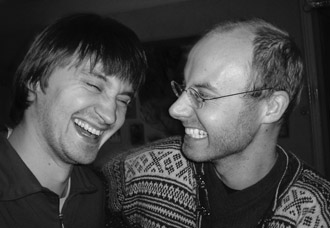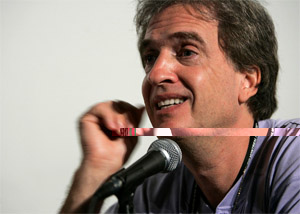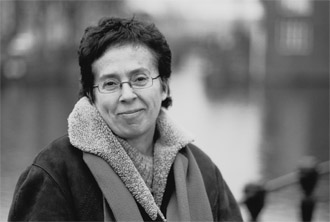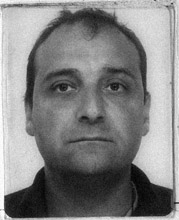BLIND LOVES
SLEPÉ LÁSKY
Slovakia, 2008
77 minutes
directed by: Juraj Lehotský

Lyrical mosaic composed of four different stories about four characters and four different ways of loving. This film specialty is that the characters are as blind as their loves. Being shot in a period of almost five years, the film takes us in hard to reach, intimate worlds of persons who substitute sight with increased sensitivity of other senses. And in these worlds unusual dreams, perceptions and ideas are revealed. In order to present visually the fine weaving behind dark glances the author upgraded his documentary style with modern and attractive film elements animation, digital and sound effects. It's a film about power of love and also about power of human need to be loved. The film premiere was at Cannes Film Festival and that was as a very special honour to values of new Slovak documentary film. This is the first Juraj Lehotský's feature documentary, but he has already created his author's profile in several awarded short films.
SELECTOR'S WORD: Maybe the most astonishingly beautiful documentary I have seen in 2008. Beautiful in its film language, all is so well thought of and performed camera, light, sound, the stories. It's full of love towards its characters, daring to be funny as well, a take only possible because Juraj Lehotsky has spent years with the blind people before he started the shooting. And now the film goes all over the world, not only for festivals but also as a cinema release!
Juraj Lehotský

Born in 1975 in Bratislava, Slovakia. Between 1990 and 1994 studied at the Higher Arts and Crafts School in Bratislava (SUP), specialised in photography. From 1995 till 2000 studied documentary film directing at the Academy of Music Arts in Bratislava (VMU). He has been working as documentary film director, director of music videos, advertising spots and spots for charity director.
Selected filmography
WITH SOME EFFORT WE'LL HAVE DIPLOMAS (Budeme mat výkony, budeme mat diplomy), 1996
UNWANTED CHILDREN (Nechcené deti), 1998
I WOULDN'T TELL I WOULD LOVE YOU SO MUCH Nevedel som e ta budem mat tak rád), 2000
CHACHEPEN=TRUTH (Cacipen = Pravda) colective work, 2002
BLIND LOVES (Slepé lásky), 2008.


















